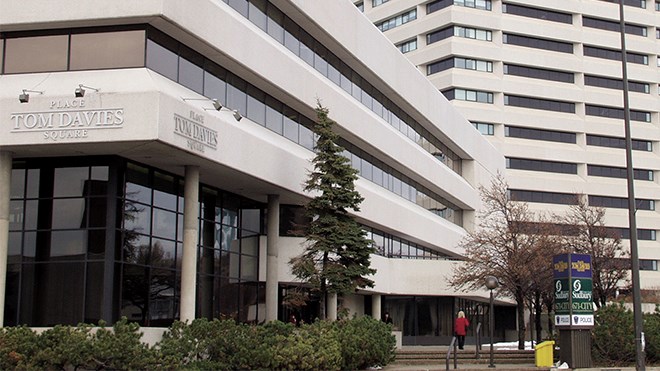The city of Greater Sudbury got some positive news on Aug. 12, as it was announced that they will be receiving $12.7 million as part of the $1.6 billion in emergency funding announced by the province on Wednesday.
Ontario's 444 municipalities will share in the first round of the funding under the Safe Restart Agreement, which will help them continue to deliver critical services such as public transit and shelters.
In Greater Sudbury, the funds will be used to offset the expenses and revenue losses incurred due to COVID-19, and mayor Brian Bigger says that the more than $12 million that the city will be receiving should cover them for at least the next six to eight months.
"The intention was clearly to offset COVID-related expenses and our latest update had us projecting a deficit of about $6.1 million directly related to COVID," said Greater Sudbury mayor Brian Bigger. "The intent is to cover us for the next six to eight months and bring us into about March of next year."
The city will be able to carry forward some of the funding into next year and offset some of the losses that they may experience due to COVID-19 in 2021. A large portion of the funds will be used to offset significant revenue losses from both transit and leisure services.
Revenue losses through reduced ridership on the city's GOVA transit system are projected to hit almost $4 million by the end of the year.
"People are aware that we're not running leisure programming and a lot of programming that does generate user fees, so it's really been a revenue challenge that this (funding) is mostly offsetting," said Bigger.
In terms of the amount of funding that was allotted to Sudbury, the mayor says he wasn't telegraphing how much the city would receive, but explained that there was a lot of behind-the-scenes work involved with securing this money for the nearly 450 municipalities across Ontario.
"Myself and council have been working throughout the pandemic, working with various organizations, Ontario's Big City Mayors, we're the 13th-largest city in Ontario so we're part of Ontario's Big City Mayors that has been advocating for funding from both the province and federal government," said Bigger.
"Also FCM (Federation of Canadian Municipalities) and AMO (Association of Municipalities of Ontario), and so we're members of all of those groups and we're actively working with them and supporting them; fairly frequent phone calls and meetings with provincial and federal ministers on the urgency, the need for something to offset the revenue losses that we've seen.
"It's not the stuff that would normally come out in a press conference on a day-by-day basis, but I can assure you that one of the key roles I have beyond working with the community control group in leading our response to COVID-19, it's also the advocacy working with other levels of government to offset some of the challenges that we were seeing."
The city's finance and administration committee met on Aug. 11 and the early stages of discussion on the 2021 budget and two-year financial plan have commenced. In past meetings of the finance and admin committee, as well as city council meetings, staff have made mention on a number of occasions that financial planning would be dependent on outside funding sources like this $12.7 million.
"This absolutely helps us in 2020 and a portion of 2021," said Bigger. "2021 will be a difficult year to budget for because of the unknowns; will we have a second wave? Have the precautions we've taken and the response that the public has taken to COVID-19 been sufficient? We also have the return to school, there are a number of key elements here."
It's unknown at this time whether this funding will have a direct impact on how the city sets their tax rate in their next budget, as the early recommendation brought to the finance and administration committee was for a tax increase of no more than 3.9 per cent and a water and wastewater increase no to exceed 4.8 per cent.
Those numbers remain on the table as the committee deferred the matter until November.
"The 3.9 per cent (tax increase) is the recommendation, council did not discuss what the rate would be and haven't discussed the finer details at this point," said Bigger.
"We deferred those decisions until let's say November and in the interim, council will have discussions about other mitigation strategies internally for us to deal with the challenges that we're seeing with COVID-19."
Those strategies could include deferring some major capital projects for the time being.
Overall, Bigger says the funding announcement is amazing news for the city, and that he and staff will continue to work hard behind the scenes at looking into easing the financial pressures that the city has been facing during the course of the COVID-19 pandemic.
"I can tell you that people have been working very hard behind the scenes," said Bigger.
"Every day, many people are working very hard and advocating on behalf of the citizens and you see that some of the rewards for that hard work has come back with a reduced number of COVID cases, limited community spread, and now seeing the announcement from the provincial and federal governments on funding. I think we're more confident now that we've taken all the appropriate actions until now, and we're in a good position but it's still upon council to make decisions moving forward with everything we know about COVID-19 into the future."
